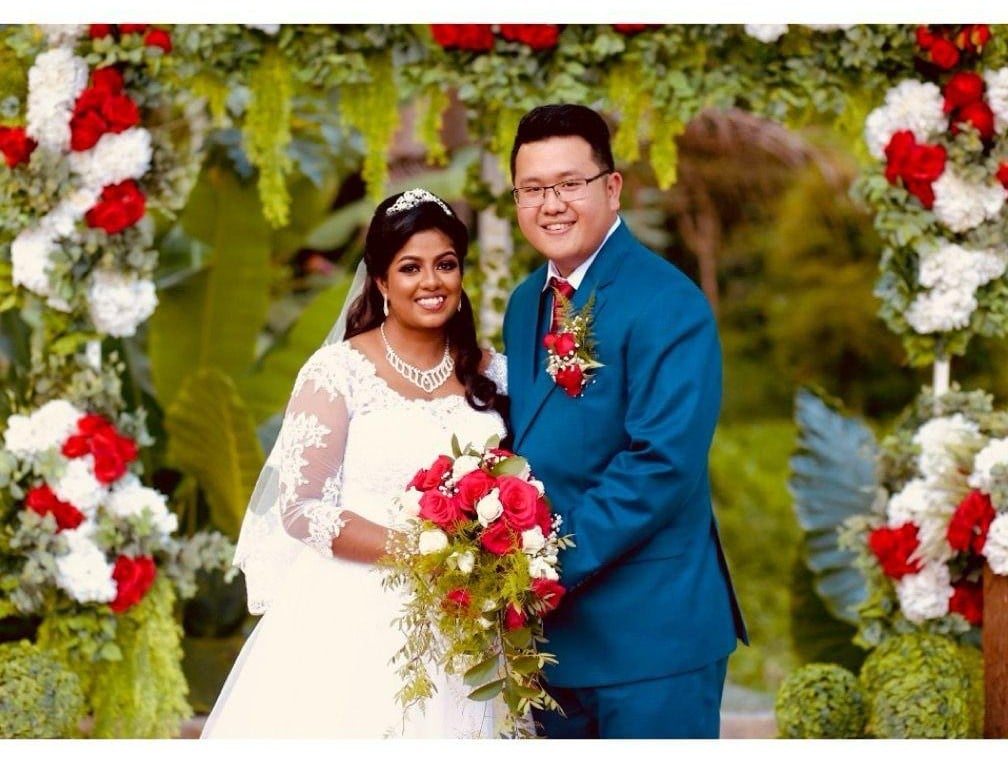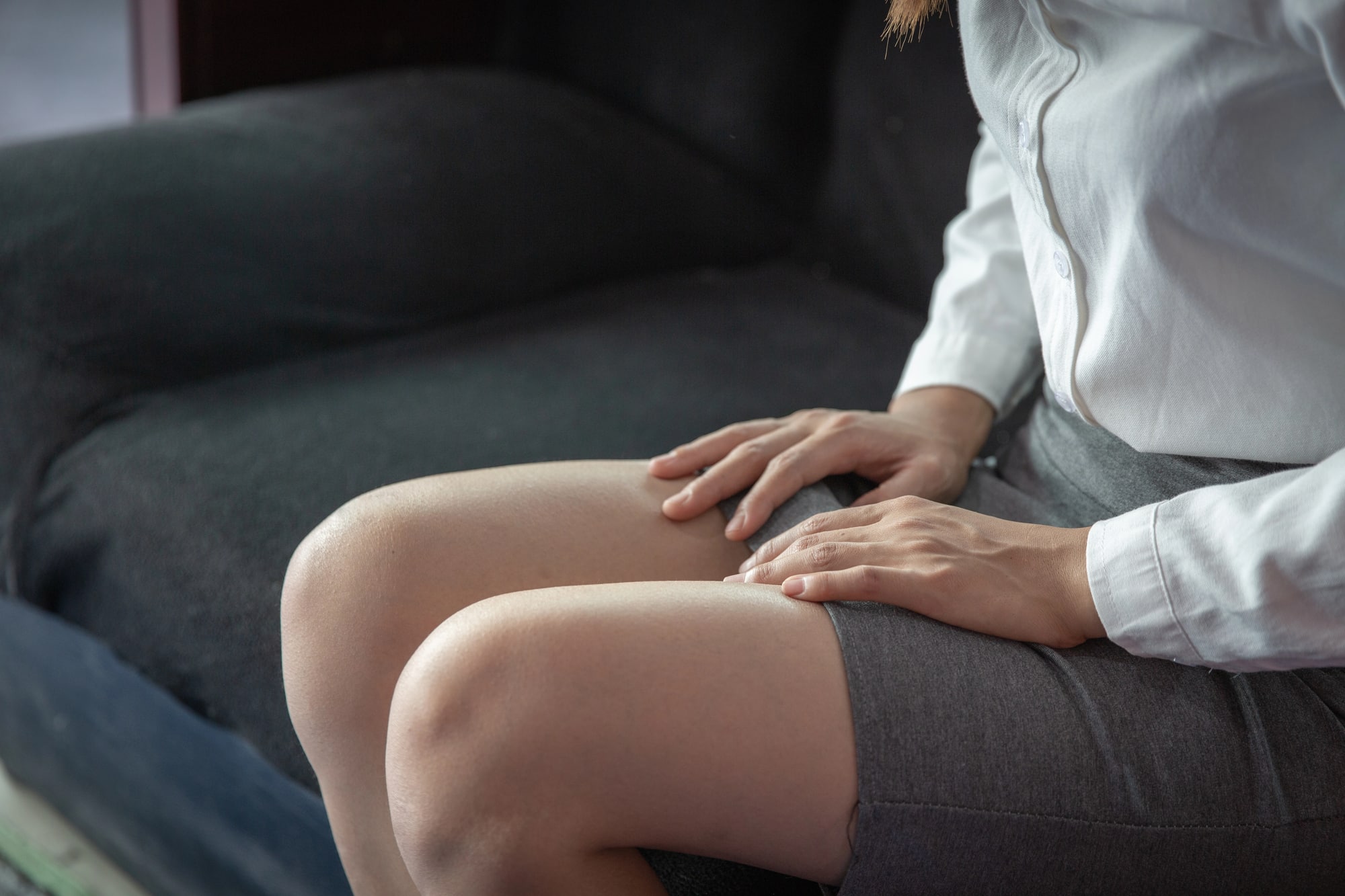“Because of God, I know I’m not rubbish”: Abandoned in a bin at birth and r*ped at 16, she found her worth through radical love
by Gracia Lee // May 5, 2025, 2:58 pm

Abandoned at birth, raped at 16 and kicked out of her orphanage when she fell pregnant, Anchaly thought she was at the end of her rope – until she experienced the love she never had. All photos courtesy of Hagar Singapore.
When Anchaly (not her real name) heard her newborn’s first cry in the hospital, she ordered the doctor to take the child away from her.
In the hours after her daughter’s birth, the Cambodian mother refused to hold her, look at her or even be in the same room as her.
Then just 16 years old, Anchaly had conceived the baby after being physically and sexually assaulted by a man – the father of a girl she had often played with – in a forest.
“Hearing my baby crying reminded me of the day the man raped me. I didn’t want to see her face. I didn’t want to hear her voice,” Anchaly, now 30, recalled.
No family
The child was a tangible reminder of an extremely painful time in her life – not just because of the rape, but the circumstances she had grown up in.
She had spent her whole childhood in an orphanage near the Thai border after being found abandoned in a rubbish bin as a newborn.
According to a booklet that had been found with her in the bin, her mother was a Cambodian who worked in a karaoke lounge. Her father was a client from Thailand.
“Hearing my baby crying reminded me of the day the man raped me.”
“But whether or not the real story was like this, I don’t know,” she told Salt&Light.
In the orphanage, which housed around 200 children, she was only given water and rice porridge twice a day. She only had a handful of clothes. She never went to school.
From as young as six years old, she would care for cattle on farms and work as a cleaner in restaurants to earn some money. “Some days I was so hungry I ate pigs’ food and leftover food in restaurants and rubbish bins,” she said.
She remembers walking to a school about 200m away from her orphanage, rummaging in the bins for food. Sometimes, she would climb a tree and peer into the classroom windows, wishing she had a chance to study too.
While her houseparents treated their own son and daughter well, Anchaly was physically and sexually abused by them regularly, she said.
“I really wished for a family who could take care of me, not even very well but just 10% or 20%. But I only dreamed about this. It did not happen.”
Raped, pregnant and thrown out
Each day was a tedious fight for survival. Then the rape happened. “I hoped that it was a dream, that tomorrow when I wake up, it would be gone,” said Anchaly.
Having not received any form of sex education, she did not fully understand what had happened to her. But she felt dirty and violated.
“Some days I was so hungry I ate pigs’ food and leftover food in restaurants and rubbish bins.”
With only a few clothes in her possession, she continued to wear the ones she had been assaulted in. For days, she could not sleep or eat. Little noises made her jump. She stayed in bed all day, crying under the cover of her blanket.
“The question in my mind was only one: Why? Why did this happen to me? I was only a child. I couldn’t see a way to trust people anymore.”
A few months later, an older neighbour who often came to spend time with Anchaly and her friends noticed that the girl had been feeling unwell.
The woman convinced Anchaly to give her a urine sample. A test revealed that the teenager was pregnant. Anchaly did not know what to think or how to feel: “I didn’t even know that when a boy and girl sleep together, you get a baby.”
For the first time, she opened up about the rape she had suffered. The woman then brought her to the hospital for a check up, which found she was more than three months pregnant, and then to the police station to lodge a police report.
By the time she returned to her orphanage that same day, word had spread about her assault and pregnancy. However, instead of receiving compassion, she was thrown out with nothing but three sets of her clothes.
“Something like this had never happened before. They thought that letting me stay there would make them have more problems,” said Anchaly.
Empty and broken
With nowhere to go, Anchaly went on her knees and begged her housemother to let her stay, even after the older woman took her out of the compound and locked the gate behind her.
Kneeling outside, she pleaded: “Where else can I go? I don’t have any family. I don’t know anyone. Please let me stay. I need this. I’m very sorry.”
But her housemother was resolute in her decision.
Anchaly was afraid to even step away from the gate. Her rapist’s home, which she had to walk past, was a mere 200m away. “I didn’t have time to find my breath. I just ran. The only feeling I felt was scared (fear),” she recalled.
“I love you. No matter what has happened, I will take care of you.”
For the next few days she roamed the streets, digging in dustbins for food and sleeping under tables in night markets.
“I didn’t have any feeling except hurt, cry, fear, don’t know where to go. When tired, just sleep. Wake up, walk around to find more food and water from the dustbin,” she said.
She remembers drawing two pictures on the road – of a mother and a father. “I slept in the middle (of the two drawings) and hoped that this would be my family.”
She awoke to rain falling on her face, and the drawings washed away.
In one of the night markets, she was raped by another man. “I didn’t know how to feel. I just felt my life was very difficult. It was very painful,” she recalled quietly, her eyes closed.
She hit herself and her stomach repeatedly. She bit her own skin. She drank toilet detergent. But she did not die.
“When I walked out of the market the next day, it wasn’t me inside already. I didn’t know who I was. I just walked, don’t know how to feel anything,” she said, wiping away tears.
“For the first time, I felt loved”
A few days later, the neighbour who had found out about Anchaly’s pregnancy came looking for her in the market and directed her to a non-governmental organisation that could help her.
That was how she eventually came to Hagar Cambodia. It is part of Hagar International, a non-profit that serves victims of sexual slavery and human trafficking. The Christian organisation also has offices in Singapore, Thailand, Vietnam, Afghanistan, Myanmar and the Solomon Islands.
“At Hagar, I finally found a home.”
Traumatised, Anchaly struggled to trust the staff members and spent the first few days hiding in a corner, crying and refusing to speak with anyone.
But her new housemother patiently sat with her and brought her food and water. A counsellor also stayed with her – all day for three days – trying to reach out to and engage her in various ways.
It took Anchaly about three months to trust and open up to her housemother and counsellor.
They taught her how to talk and sing to her unborn baby. Her counsellor accompanied her to testify against her rapist. Her housemother stayed by her side constantly in the days leading up to her due date.
“At Hagar, I finally found a home. For the first time in my life, I felt loved,” said Anchaly.
Choosing to love her daughter
It was her housemother and counsellor from Hagar Cambodia who had stood by her side after her daughter was born.
Her counsellor encouraged her to keep the child, promising that Hagar would support them. But Anchaly was resistant.
“I said, ‘I don’t want this child. This child is not from love. This child came in a bad way. Why do I need to keep her? It wasn’t my fault.'”
Understanding her position, the counsellor then asked her to pray and ask God what she should do with the child.
That night, she had a dream about everything that had happened in her life – from being abandoned to growing up without a family. At the end of the dream, a question came to her: “Do you want your daughter to live like this?”
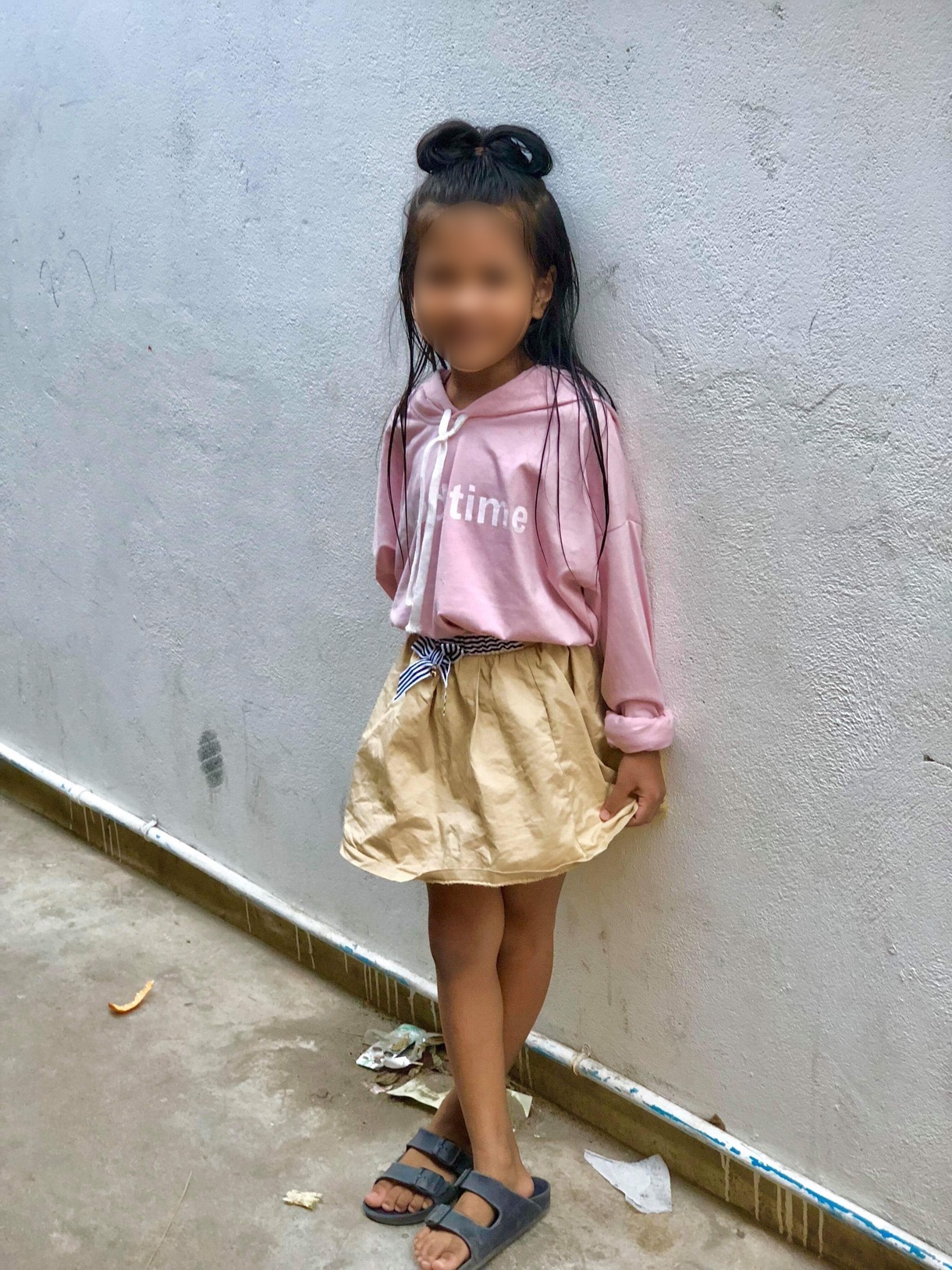
Serey at six years old.
It reminded Anchaly that as a young child, all she ever wanted was a family, to know love and be taken care of by her mother. It also dawned on her that this baby was the only real family she had.
When she awoke, she immediately asked her housemother to bring her daughter to her.
Holding the girl for the first time, she looked into her eyes and told her: “I love you. No matter what has happened, I will take care of you. Everything I never had, I will give to you.
“I don’t know about love from a mother to a daughter, but I will do my best for you.”
Unconditional love
Staff members at Hagar Cambodia made good on their promise to support Anchaly and her daughter, Serey (not her real name).
They took care of both mother and daughter. They sent Anchaly for cooking classes and found her a job. They listened to her whenever she had any struggles.
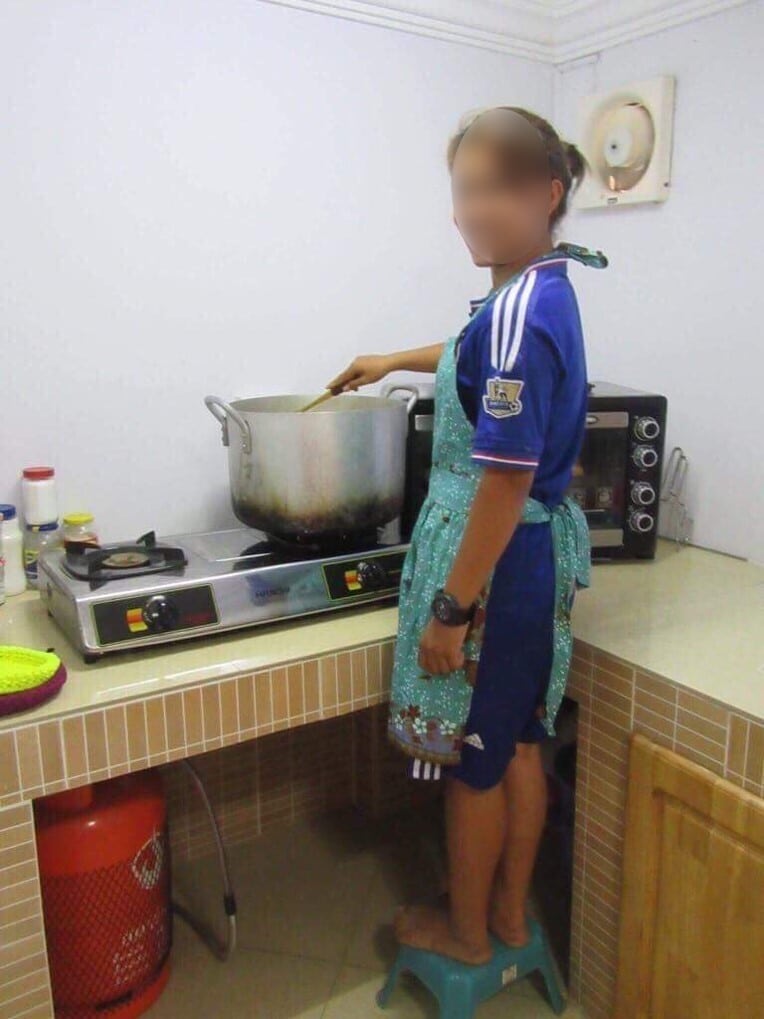
Anchaly learning how to cook.

Young Serey with Anchaly’s housemother from Hagar Cambodia, who helped to care for Serey growing up.
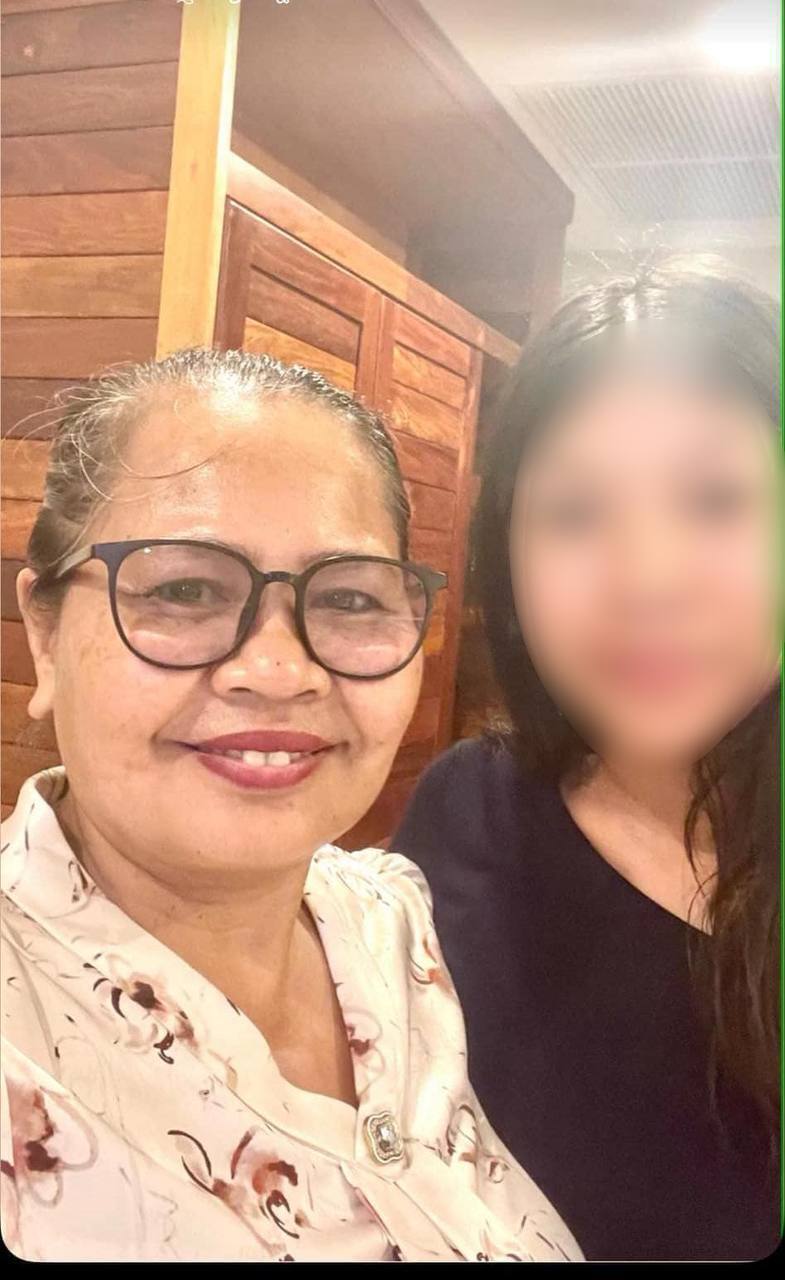
Serey with the former Hagar Cambodia housemother, whom she calls “grandma”, today.
But the best thing that they gave her, Anchaly says, was the knowledge of a God who loves her. They took her to church, read the Bible with her and taught her that the Creator of the entire world loves and cares for her unconditionally.
She remembers feeling deeply moved the first time she watched a movie about Jesus coming to earth as a baby, and dying on the cross for her sins.
“I never had people to carry anything for me. But God, the One who is perfect, carried everything to save us, because God loves us,” she said.
“People can run away. They can today say ‘love’, but tomorrow ‘don’t love’. Today they listen to me, tomorrow they don’t listen. But God is not like that. Every day, every time, He will listen. He will answer.”
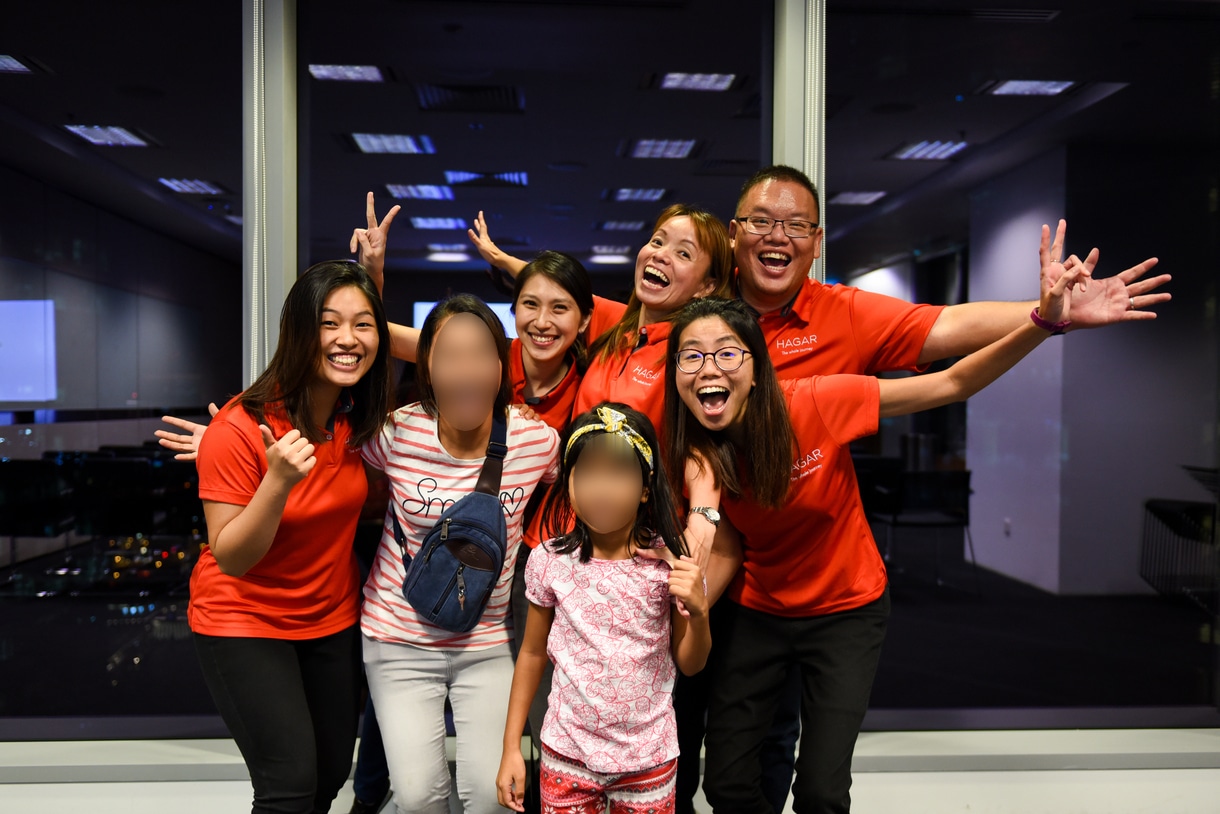
Anchaly and Serey with the Hagar Singapore team when they came to Singapore in 2018 for Serey’s operation.
His love and provision is something that she has experienced for herself.
When Serey had trouble walking due to spina bifida, a birth defect characterised by a gap in the spine, God paved the way for them to come to Singapore in 2018 for medical treatment.
Through Hagar Singapore, they were linked up with Mount Alvernia Hospital which found them a doctor who was willing to operate on Serey for free.
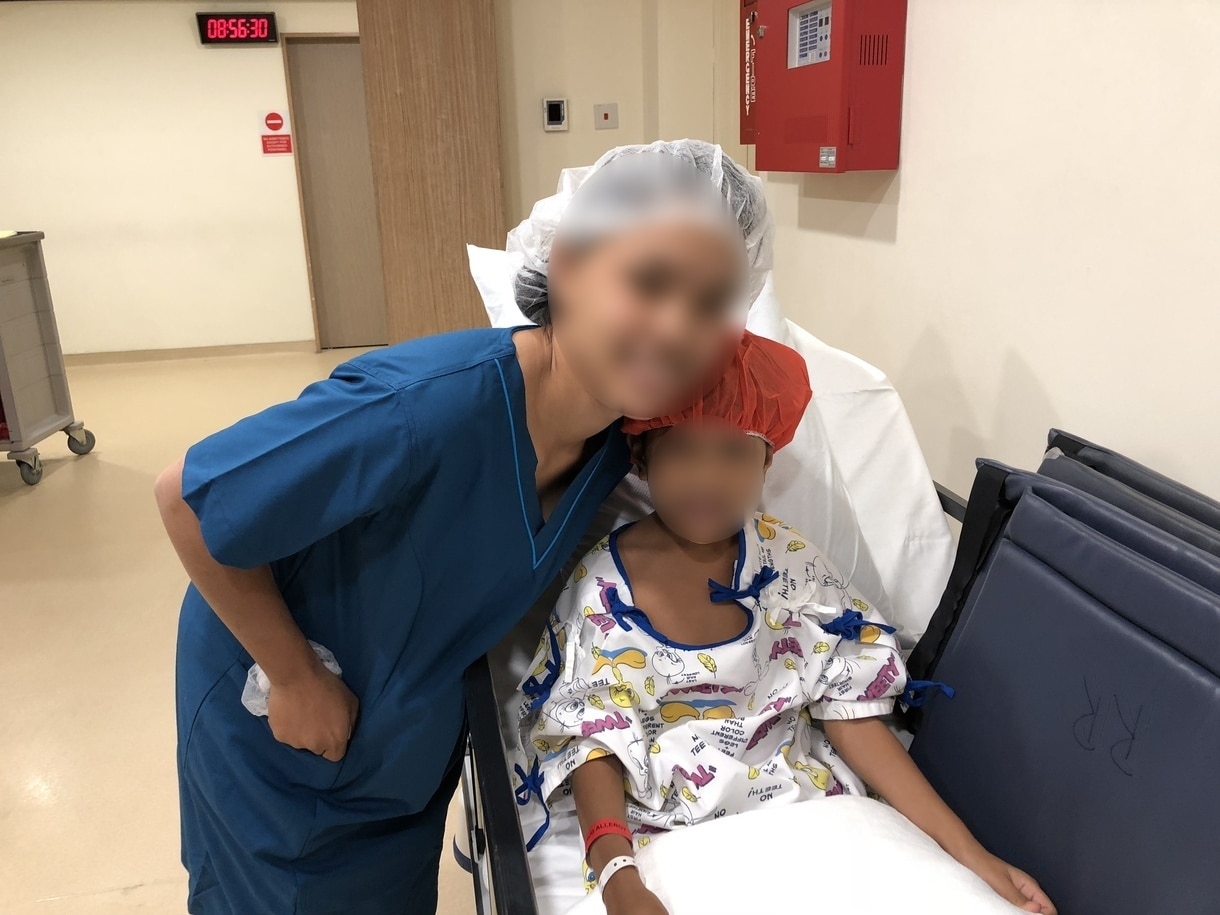
Anchaly and Serey in Mount Alvernia Hospital before Serey’s operation.
Donors from Hagar Singapore then raised some S$80,000 to cover the hospital’s fees, of which half were waived, as well as the expenses incurred from their month-long stay in Singapore and subsequent follow-ups back in Cambodia.
Today, Serey, 13, can walk and run normally.
Then, when Anchaly met with a motorbike accident in 2022 and aggravated her injuries by carrying rice sacks for work, donors from Hagar Singapore again raised money so she could undergo an operation.
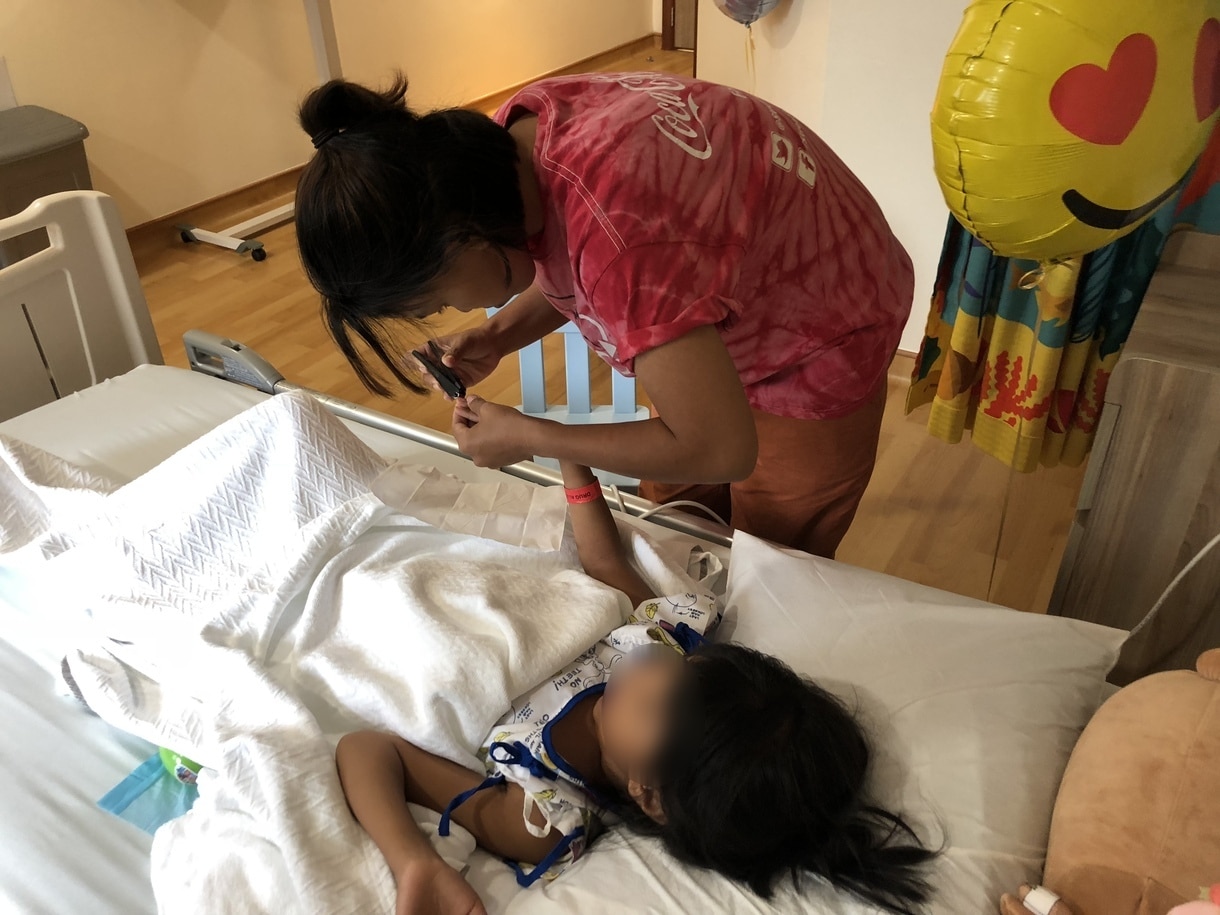
Anchaly caring for Serey at Mount Alvernia Hospital in 2018.
Even before she knew God, He was already taking care of her, she said.
She recalls being born with a tongue defect, which left her unable to speak. But when she was about three or four years old, a group of Christian doctors from France came to her orphanage and brought her to their country for an operation that corrected the issue.
“God never runs away. God says the same thing: Just only come to Him. He’s the One who will carry everything.”
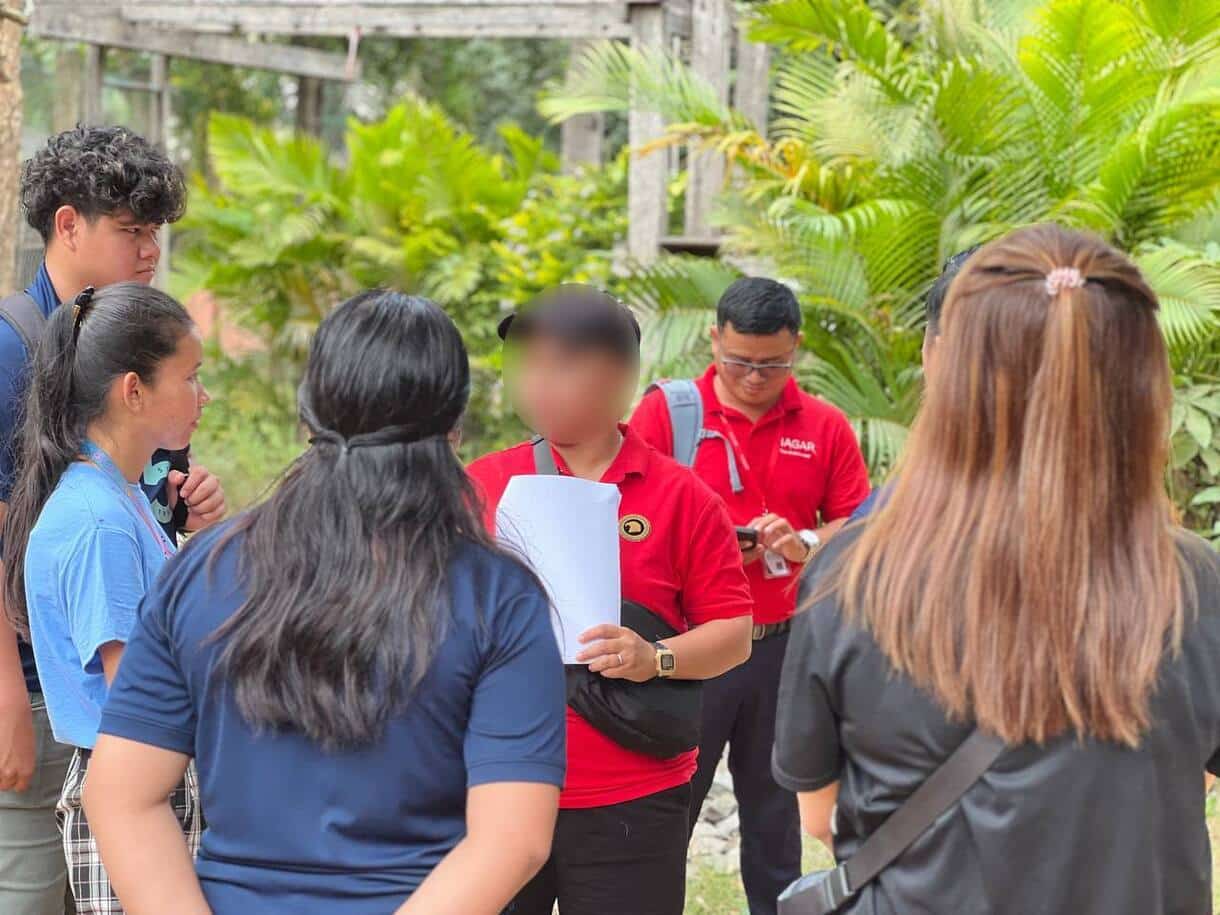
Anchaly is now a staff member at Hagar Cambodia and desires to help others the way she was helped.
Despite the suffering and injustice that she has suffered throughout her life, Anchaly believes that God is still good.
“All the bad things that happened to me is not God’s fault. It’s people who do evil. Sometimes it’s my own mistake too,” she said.
“But whenever I’m down, God always makes a way for me and helps me. I know God loves me and He watches over me all the time.”
Not rubbish
Today, Anchaly has a burden to help other women and children like herself.
Every Sunday, she runs games and programmes for destitute children with her church. Last year, she also joined Hagar Cambodia as a staff member.
“I want to help my own people to know God, become stronger and have a good life,” she said.
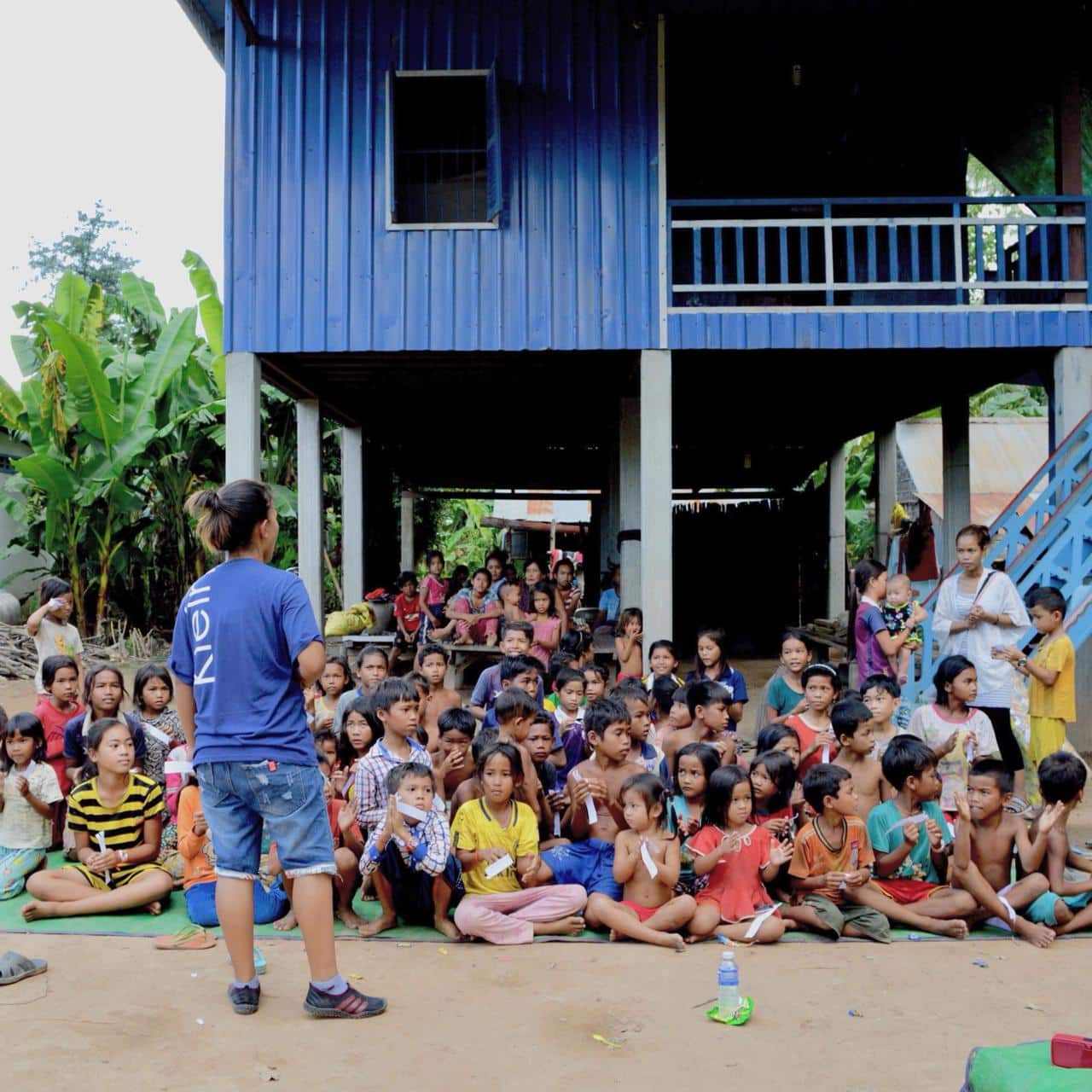
Anchaly holding programmes for destitute children in Cambodia.
In many ways, the staff members at Hagar Cambodia and Hagar Singapore, whom she came to know in 2018 during Serey’s operation, have become like family to her and her daughter.
Through them, she has also learnt how to heal from her traumatic past – to the point where she says she has forgiven her abusers.
“I am also not a perfect person. All the time I do and say wrong things. But God is the One who forgives me and chooses me. When we forgive, we show how much we love God.”
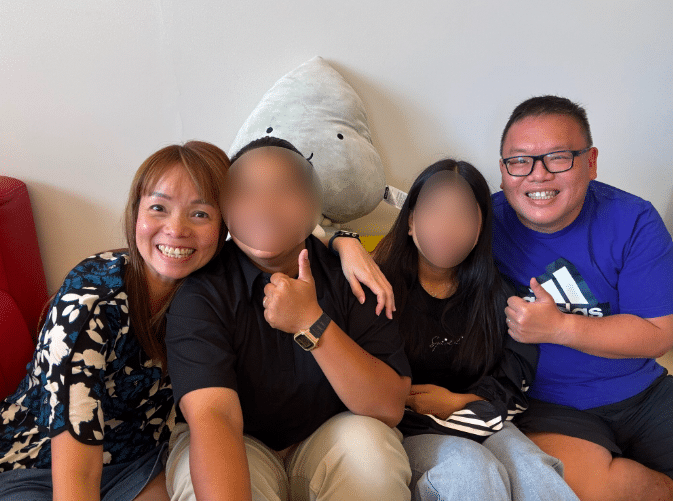
Anchaly and Serey with Lynette, head of communications at Hagar Singapore, and Michael, executive director of Hagar Singapore, who have become like family to them.
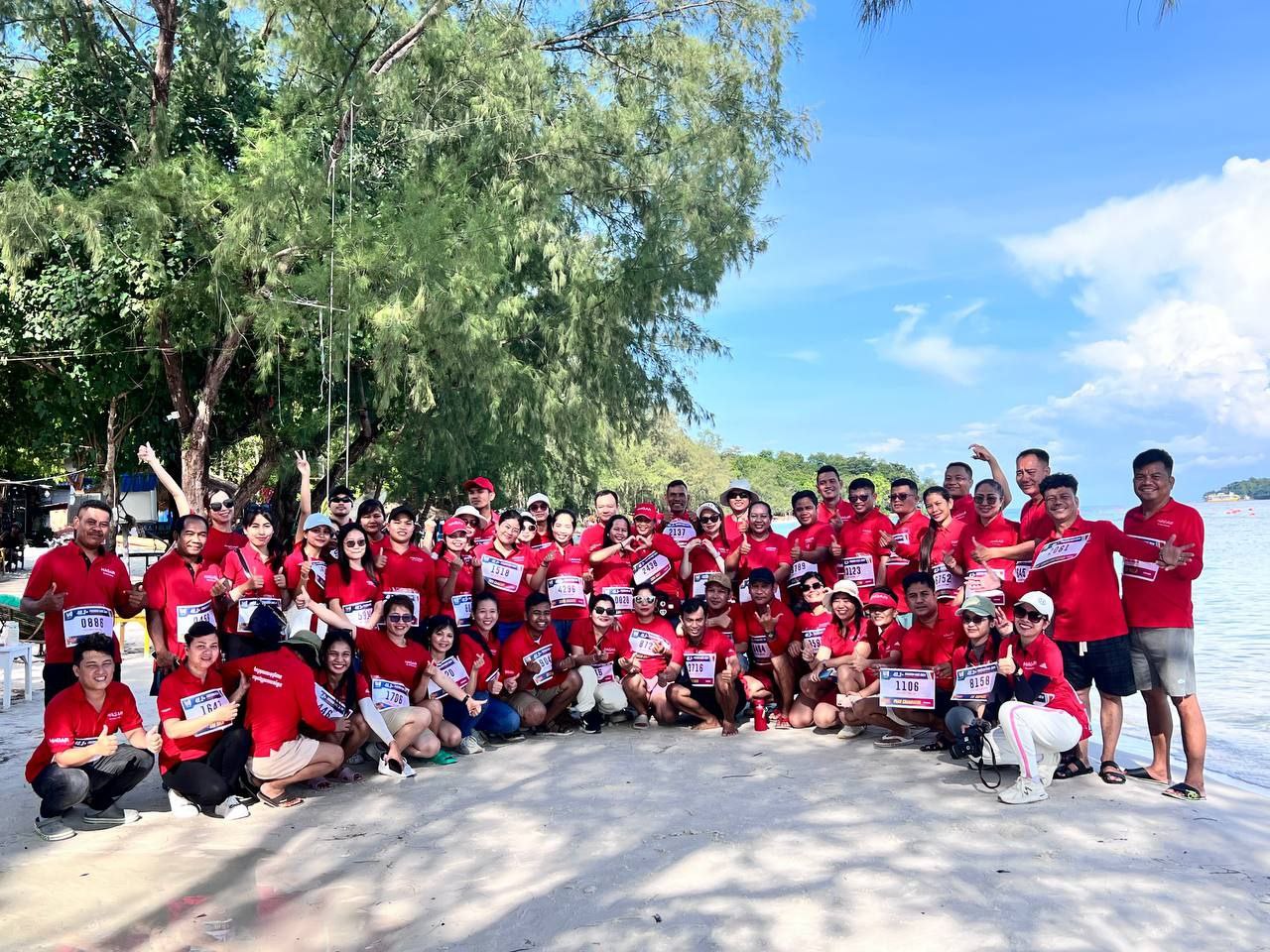
The team at Hagar Cambodia has been a supportive family to Anchaly.
She added reflectively: “If this hadn’t happened in my life, I wouldn’t know about God.”
Because of God, she now knows she is deeply loved.
“Because of God, I know I am not rubbish.”
Help Hagar love the downtrodden
The United States government’s decision earlier this year to cancel previously approved USAID grants are having devastating consequences on Hagar’s programmes and services for survivors, particularly in Cambodia, Thailand, Vietnam, and Afghanistan.
In Cambodia, they are facing the potential shutdown of their foster care programmes for abandoned children, as well as critical services for trauma recovery, medical care, education, economic empowerment and protection for abused children.
In Thailand, Vietnam and Afghanistan, their anti-trafficking programmes and services for sexually abused children, women and rape survivors are also at serious risk of closure.
While seeking urgent donations to meet critical needs, Hagar is also working on longer-term funding alternatives and programme redesign efforts. All this means that they are facing a total shortfall of about S$420,000.
RELATED STORIES:
Trafficked to Singapore at 14 as a sex worker, she shares how she found hope in despair
We are an independent, non-profit organisation that relies on the generosity of our readers, such as yourself, to continue serving the kingdom. Every dollar donated goes directly back into our editorial coverage.
Would you consider partnering with us in our kingdom work by supporting us financially, either as a one-off donation, or a recurring pledge?
Support Salt&Light